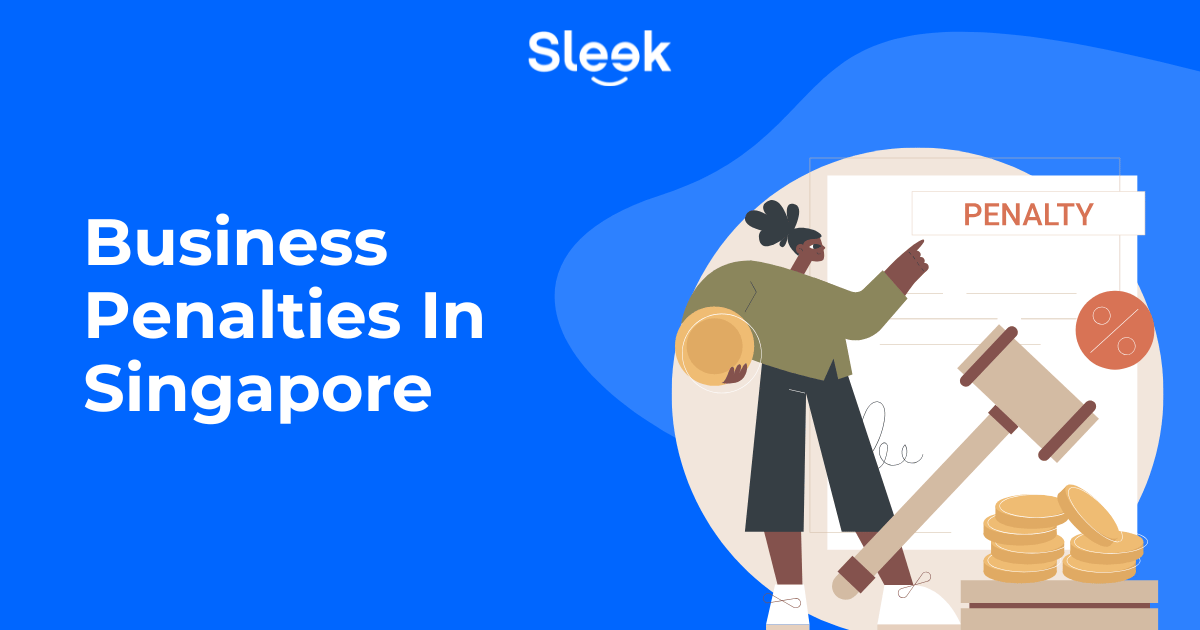Tax Clearance in Singapore: A Complete Guide
If you want to find out all there’s to know about tax clearance in Singapore – you’re in the right place! Whether you’re running a business or you’re an employee – it’s crucial to get your taxes right, and steer clear of any legal consequences in this regard. In this article, we will break down tax clearance in simple terms.
We will learn what exactly is tax clearance? Who needs it? And what happens if you “forget” to do it? (Spoiler alert: nothing good.), and which a reliable and affordable option for your tax clearance in Singapore.
What is tax clearance in Singapore?
Tax clearance, also known as IR21, is a process that foreign employees in Singapore must go through before leaving the country for an extended period or permanently. It’s a crucial step to ensure compliance with tax regulations and avoid legal issues.
Tax clearance process, tax clearance requirement
The tax clearance process involves settling all taxes owed to the Inland Revenue Authority of Singapore (IRAS) before departure. This tax clearance requirement applies to foreign employees, including expatriates and foreign workers. If you’re an employer, it’s your responsibility to initiate the tax clearance process for your foreign employees. You’ll need to file Form IR21, also known as the iras form, for each IR employee ceasing employment or when employees leave Singapore. It is crucial to stay on top of the tax clearance process. In case, an employee leaves the country without completing their tax clearance, and it can lead to a lot of headaches for both the employee and the company.
Not sure how to file IRAS tax clearance for foreigners? Not to fret, we have created a guide on that.
Who needs to seek tax clearance in Singapore?
If you’re a foreign employee working in Singapore, you’ll likely need to go through the tax clearance process at some point. This applies to a wide range of individuals, including: Employee leaves Singapore, employee ceases, employee starts, employee falls
- Non-Singapore citizen employees who are leaving the country for an extended period or permanently
- Foreign employees who are ceasing employment with their current company
- Employees who are starting an overseas posting or assignment
- Singapore permanent residents who are leaving the country permanently
It’s important to note that even if you’re a Singapore permanent resident, you may still need to go through the tax clearance process if you’re leaving the country for good. Don’t assume that your residency status exempts you from this requirement. I once had an employee who was a Singapore permanent resident and thought they didn’t need to worry about tax clearance when they decided to move back to their home country. It caused a lot of confusion and delays in the process. Always double-check with IRAS or your employer to confirm whether tax clearance is necessary for your situation.

When is tax clearance required in Singapore?
Knowing when to initiate the tax clearance process is crucial for both employers and employees. Generally, tax clearance is required when: Overseas posting, company merger, industrial attachment, educational programme.
- An employee is leaving Singapore permanently or for an extended period (more than 3 months)
- An employee ceases employment with their current company
- An employee is posted overseas for work or an assignment
- A company merger or acquisition results in employees being transferred to a new entity
It’s essential to plan ahead and start the tax clearance process well in advance of the employee’s departure date. IRAS recommends initiating the process at least one month before the employee leaves Singapore or ceases employment. In my experience, it’s better to err on the side of caution and begin the process even earlier. This gives you plenty of time to gather the necessary documents, file the appropriate forms, and address any issues that may arise. Rushing the process at the last minute can lead to mistakes and potential legal consequences.
Not sure what is the process when hiring employees in Singapore? We have created an in-depth guide that includes everything you need to know.
How to file form IR21 for tax clearance
Filing Form IR21 is a key step in the tax clearance process. As an employer, you’ll need to submit this form to IRAS for each foreign employee who is leaving Singapore or ceasing employment.
Step-by-step guide for your tax portal – mytax portal, mytax mail

The easiest way to file Form IR21 is through the mytax portal. This online tax portal allows you to submit the form electronically, making the process more efficient and convenient. To file Form IR21 through the mytax portal, follow these steps:
- Log in to the mytax portal using your CorpPass or SingPass
- Navigate to the “Employees” section and select “File Form IR21”
- Fill in the required details for your employee, including their personal information, employment details, and income earned
- Review the information for accuracy and submit the form
If you encounter any issues or have questions during the filing process, you can reach out to IRAS through the mytax mail feature within the portal. I know filing tax forms can be intimidating, but the mytax portal really simplifies the process. I’ve filed numerous Form IR21s through the portal, and it’s always been a smooth experience. Just make sure you have all the necessary information on hand before you start, and don’t hesitate to reach out to IRAS if you need assistance.
Key takeaway:
Before you pack your bags and leave Singapore, make sure to clear your taxes. This goes for all foreign employees and even permanent residents moving away permanently. Employers, it’s on you to kickstart this process by filing Form IR21. Don’t wait till the last minute; avoid headaches by checking off tax clearance early.
What information is needed for tax clearance?
When it comes to tax clearance in Singapore, there’s a lot of information that needs to be provided. Trust me, I’ve been through this process more times than I can count.
Subsistence allowances, release monies, and public entertainers
One of the key pieces of information that’s required is details about the employee’s employment, including the services rendered and any daily expenses or subsistence allowances that were paid. If you’re dealing with public entertainers, you’ll also need to provide information about any release monies that were paid out. I remember one time when I was helping a client with their tax clearance, and we spent hours going through all of their records to make sure we had everything we needed. It was a tedious process, but it was worth it in the end when we got the clearance we needed.
Tax clearance calculator and due dates
Another important aspect of tax clearance is knowing when everything is due. You don’t want to miss any deadlines and end up with late filing penalties.
Pay tax, notify IRAS, and give a month’s notice
The first thing you need to do is use the tax clearance calculator to figure out how much tax needs to be paid. Then, you need to notify IRAS at least a month before the employee leaves Singapore or ceases employment. I’ve seen too many cases where employers waited until the last minute to start the tax clearance process, and it always ends up being a scramble to get everything done in time. Trust me, it’s not worth the stress. Start early and give yourself plenty of time to get everything in order.
Exceptions and special cases for tax clearance
Of course, there are always exceptions to the rules when it comes to tax clearance. It’s important to know what these are so you don’t end up wasting time on unnecessary paperwork.
Auto-inclusion scheme and Singapore employer continues
One of the most common exceptions is for employees who are under the auto-inclusion scheme. If the employee is transferring to another company in Singapore and the employer continues to pay their salary, then tax clearance may not be required. There’s also a two-year administrative concession for foreign employees who have worked in Singapore for less than two continuous years. But be careful – this concession doesn’t apply to everyone, so make sure you check the rules carefully.
Consequences of not seeking tax clearance
Finally, let’s talk about what happens if you don’t seek tax clearance when you’re supposed to. Spoiler alert: it’s not good.
Valid work pass and inland revenue authority
If you fail to seek tax clearance for an employee who needs it, you could be on the hook for their income tax liabilities. The Inland Revenue Authority of Singapore (IRAS) takes this stuff seriously, and they have the power to impose penalties and fines if you don’t comply with the rules. Plus, if your employee needs a valid work pass to stay in Singapore, failing to get tax clearance could jeopardize their ability to remain in the country legally. It’s just not worth the risk.
Key takeaway:
Don’t get caught off guard with tax clearance in Singapore. Gather all employee details, use the calculator for dues, start early to avoid penalties, and know the exceptions to stay compliant. It saves time, stress, and legal trouble.
Conclusion
Well, there you have it – the ins and outs of tax clearance in Singapore. It might seem like just another bureaucratic hoop to jump through, but trust me, it’s worth doing right. The last thing you want is to be haunted by unresolved tax issues when you’re trying to start a new chapter elsewhere.
Remember, the key is to be proactive. Don’t wait until the last minute to start the process. Gather your documents, file that form, and keep the lines of communication open with your employer and IRAS. And if all else fails, don’t be afraid to seek help from a professional.
If you run a company in Singapore, and need expert assistance for incorporation, accounting, and tax compliance requirements, talk with a local expert at Sleek.









